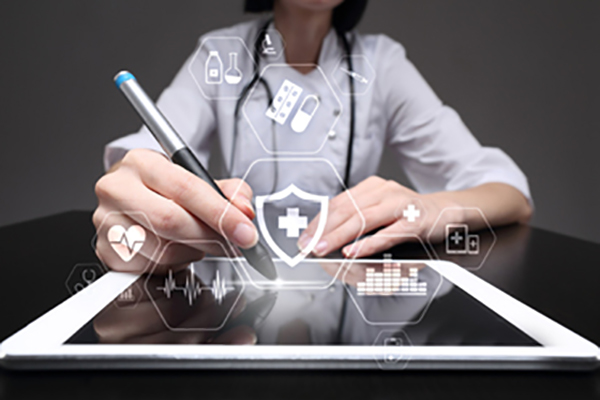Digital Health Tools Can Keep Workers Safe and Preserve Privacy

Digital tools that confirm a person’s health status can create safe work environments while also protecting personal privacy as businesses and supply chains recover from the COVID-19 disruption, according to MIT professor Alex “Sandy” Pentland, who is working on this issue with the United Nations and Club de Madrid, a consortium of former democratic presidents and prime ministers.
Creating a safe workforce is behind some of the most successful efforts at suppressing the disease. Countries such as Taiwan, Korea, and Singapore now have a certified group of workers that can help restart the economy—but democratic countries see that approach as a threat to civil liberties, he says.
To protect personal privacy, Pentland proposes that hospitals, banks, and other civic institutions serve as repositories for health data, as they already do for financial and personal information. This would determine individuals’ ability to work while avoiding national or state registries, which are tempting targets for misuse.
This health certification may help decide which businesses are safe to reopen, and make contact-tracing more efficient. Certifying workers could be accomplished with high-tech methods such as secure multiparty computation or “risk maps” aggregated from anonymized data, he says.
Financial incentives could help kickstart the process. The government, for example, could offer tax breaks to companies that employ safe employees, and businesses could offer increased pay to motivate workers to take public-facing jobs, Pentland suggests.
